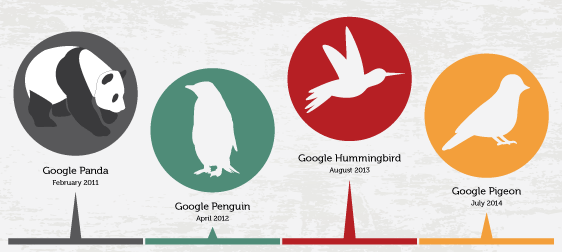Imagine you own a lemonade stand. Your lemonade stand in located down a busy shopping street, lets call it Orchard road. Like you, there are many other entrepreneurs having shops and lemonade stands like yours. Some have 100,000 shoppers walking past, while others have only 10 shoppers glancing.
Where would you want your lemonade stand to be? In a prime position with lots of visitors of course!
How can you position your lemonade stand better? Here are 3 ways:
Well, you could pay the landlord a ton of money to rent out a good position to you (Paid position such as Adwords).
OR You can try to curry favour with the landlord through your friends' connections (link building from other websites).
OR If you are a famous Lemonade stand that can attract visitors to Orchard road, the landlord would give you a better position because it benefits the whole of Orchard road because you draw in visitors already (high domain authority on the internet)
Location, Location, LOCATION! Applicable on the internet too.
- Clement Koh
What is Search Engine Optimization?
As of August 2017, there are about 47 billion web pages indexed across all the major search engines and almost all of them were indexed on Google. This is an important distinction.
Not only is Google the trendsetter that competitors try to copy, it’s also the most powerful and popular search engine. It’s why, in August 2017, there are about 6,586,013,574 searches a day worldwide 81.12% of them are done through Google.
That's huge! No wonder "Google" became a verb.
If you want to improve your website’s SEO, you need to focus your SEO strategy on Google and its search algorithms. Of course, please look at your demographic. If you are in China for example, do take note of Baidu's algorithm. For most of you focusing on Google is the best time spent.
Well, let's read on.
History of SEO at a Glace

Google SEO is very refined and harder to “game” than ever before. But this was not always the case. In fact, back in the early 2000s, an SEO-savvy web developer could create a keyword-heavy microsite around a target keyword and make millions of dollars.
For example, let’s say that, back in 2005, you noticed there weren’t many online resources for young Millennials looking to navigate the new playing field of online dating. So after a bit of research you decided to create your own site that provides online dating advice. By cramming your cheap, spammy website full of keywords like “online dating,” “dating advice,” and “how to get a girlfriend,” you quickly ranked in the first page of search results for those keywords. By adding prominent call-to-actions to buy your new e-book on the subject (for only $8.99!), you quickly made millions.
These days, that type of SEO gaming is pretty much impossible. With the release of Google Panda back in 2011, spammy SEO keyword tactics were eliminated. Since then, Google has released a number of additional updates, like Hummingbird and Penguin, that have all made the search engines smarter at outsmarting marketers who are looking to exploit spammy SEO tactics. In 2014, Google released Pigeon, causing a big impact on local seraches. 2015, Google's biggest update "mobilegaden" heavily favours websites that are mobile optimised.
In order to reward brands with great marketing campaigns and punish brands that rely on bad, spammy marketing tactics, Google considers a lot more than just keyword placement now. Everything from a site’s ease of use on desktop and mobile to how well the copy is written is put under the magnifying glass and factors into page ranking.
SEO for Startups and SMEs

For startups and small businesses that have lower marketing budgets and fewer web pages to monitor, basic SEO best practices are absolutely essential. A startup marketer’s job should be to learn as much as possible about SEO, and then use that knowledge to create a viable SEO strategy that effectively puts the brand in front of as many target buyers as possible.
This means understanding what matters to Google today. On a very basic level:
Words Matter
The keywords you choose, how well you use them, and even where you put them matter a great deal to Google’s algorithms. Quality writing and smart keyword usage will greatly increase your ranking in SERPs.
Titles Matter
Your page titles, headers, and subheaders must be effective and precise. These road signs help Google’s “spiders”—digital crawlers that index your website pages—determine what any given page is about. Your keywords should definitely show up where appropriate.
Links Matter
One way Google determines the reliability of a web page is by looking at its links. The more real inbound and outbound links, the more likely that the page has great information and will actually matter to readers. Be warned that Google is very good at spotting fake or paid links.
Reputation Matters
A site’s authority matters considerably now. Authority is an aggregate measure of hard-to-define metrics like trust, expertise, and popularity. Traffic is one way to measure authority, inbound and outbound links are another way, social media shares and comments are a third way, etc.






